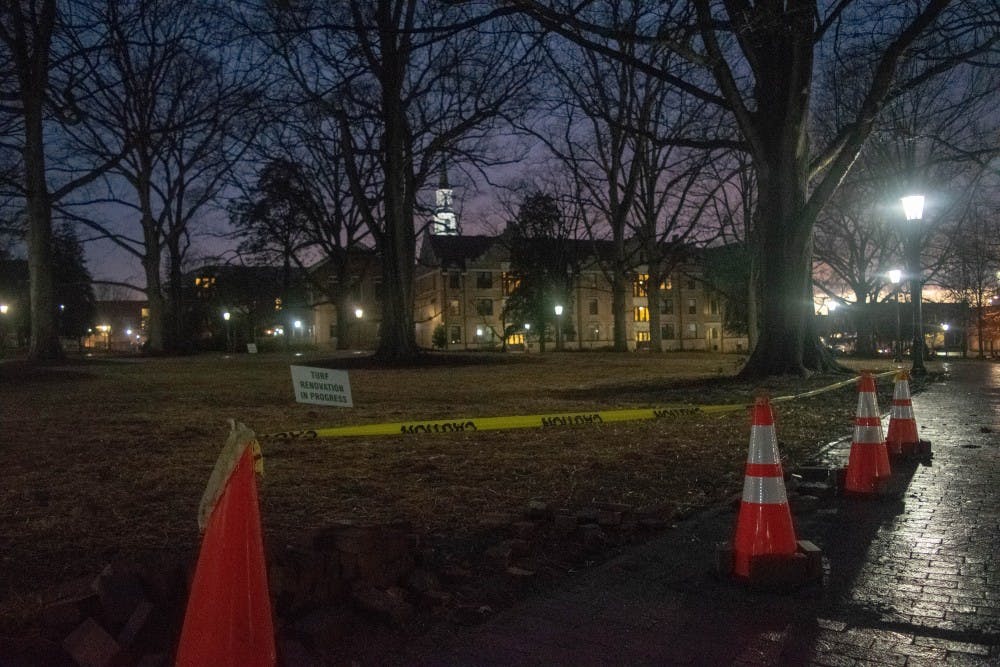Dwayne Dixon, a professor in the Department of Asian Studies, was charged with simple assault during a protest at Silent Sam over allegations of striking Patrick Howley, the editor-in-chief of Big League Politics, on Aug. 20.
Along with his arrest, Dixon received a trespass notice from UNC Police, barring him from entering McCorkle Place, where Silent Sam once stood.
The Daily Tar Heel was unable to find UNC's policies and procedures on issuing trespass orders online. In an email to The Daily Tar Heel, Randy Young, media relations manager for UNC Public Safety, said a trespass citation is not issued unless an individual violates their trespass notice.
"The notice itself reflects no punitive action," Young said in the email. "It simply warns an individual that they are not to return to a specific campus location or the entire campus depending on the circumstances."
Young also said that trespass notices can be issued in a variety of situations that may or may not involve related criminal citations.
Almost three months after Dixon's arrest, Judge Samantha Cabe of the Orange County Courthouse dismissed Dixon’s case due to a mistake in the charging document. But the trespass notice, which bans Dixon from McCorkle Place indefinitely, remained. After two years, recipients of trespass notices are allowed to seek relief from the notice by contacting the chief of UNC Police.
So, Dixon began trying to appeal the notice.
UNC trespass notices contain a section on appeals, which states that a written appeal must be postmarked to the UNC chief of police — in this case, Chief Jeff McCracken — within 10 days of receiving the notice. The appeal letter should include reason for being on University property, future need to be on University property and the grounds for appeal. The Chief’s decision is the University’s final decision.
Eleven days after receiving his trespass notice, Dixon wrote the police department a letter requesting that the trespass notice be nullified, citing his need “to travel freely in (his) place of employment” and his First Amendment right to free speech and assembly.



